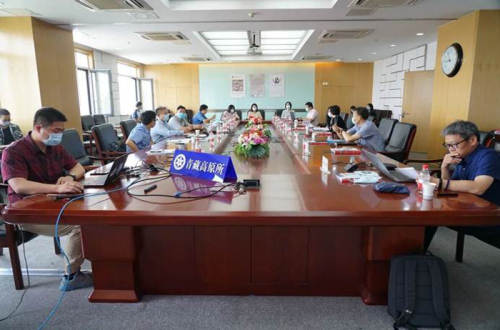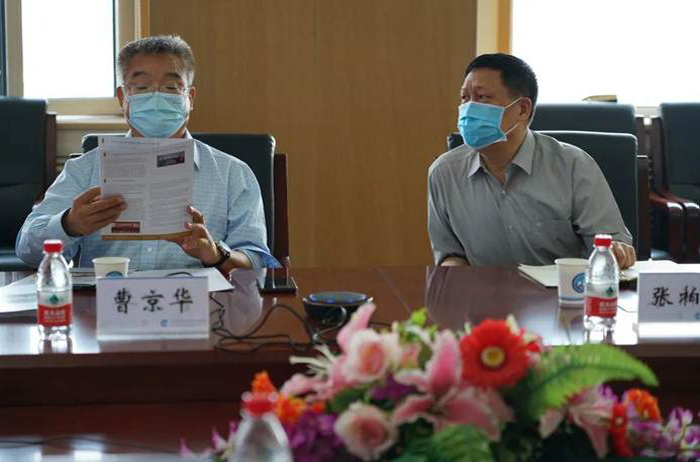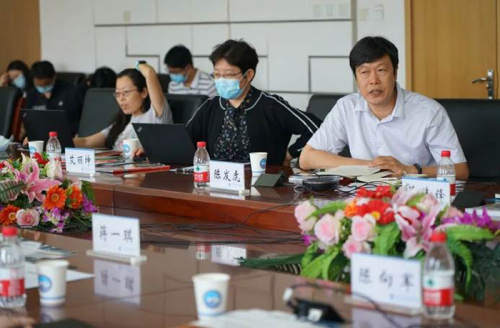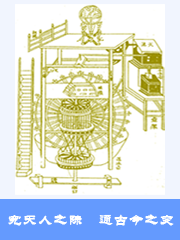- IHNS Director Zhang Baichun and Others Attended the “Culture Evolution and Environment Changes along the Ancient Silk Road” Seminar
On May 30, the ANSO Association for Trans-Eurasia Exchange and Silk-Road Civilization Development (ATES) successfully held the “Culture evolution and environment changes along the Ancient Silk Road” seminar. This seminar was mainly hosted by the Institute of Tibetan Plateau Research, Chinese Academy of Sciences (ITPCAS), the ATES, the Institute for the History of Natural Sciences (IHNS), Chinese Academy of Sciences (CAS), and the China National Silk Museum. For the prevention and control of the epidemic, this seminar was held both at the major venue in Beijing and at the sub-venue Lanzhou University, with the integration of online and offline meeting channels. The participants included more than 80 representatives from the Bureau of International Cooperation (BIC), CAS, the ANSO Secretariat, ITPCAS, and the ATES. Prof. Zhang Baichun, director of IHNS, and Assoc. Prof. Chen Wei were invited to deliver reports, accompanied by Assoc. Prof. Huang Xing, Assoc. Prof. Liu Hui, Assoc. Prof. Wang Fang, and others.
Prof. Cao Jinghua, executive director of the ANSO Secretariat, outlined the positioning and general situation of ANSO, and highly regarded the international cooperation project and the ATES for the cultivation planning of young scientists. Mr. Dong Weifeng, secretary of the Party Committee of ITPCAS, explained the basic situation of the institute on behalf of the seminar organizer and stated that ITPCAS will fully support the implementation of the project and the development of ATES. Mr. Jiang Yiqi, deputy director of the Division of Asian and African Affairs of the BIC, CAS, observed that the project and the ATES are of great significance to civilization exchanges, scientific and technological development, and environmental issues in the Belt and Road (B&R) region. Prof. Zhang Baichun deemed that the B&R Initiative could usher in a new chapter for international cooperation, though challenges were incurred by the weak research foundation, complex geopolitics and religion factors, and insufficient mutual trust in the B&R region. This international cooperation project and the ATES start with the environment changes in the Ancient Silk Road region and integrate natural science and humanities, which will hopefully boost the national B&R Initiative.
Each contact of the five working groups of the ATES reported their research objectives, achievements, and the 2020 working plans. Among them, Assoc. Prof. Chen Wei delivered the report for the fourth working group “The interchange of science and technology along the Silk Roads.”
Academician Chen Fahu, head of the ATES, concluded that the undertaking of the project and the development of the ATES will help explore such important scientific as human diffusion, agricultural technology transmission, succession of towns and routes, scientific and technological exchanges, and the impact of environmental changes on the civilizations along the Ancient Silk Road. At the same time, they aim to train versatile professionals in science and technology who are equipped with international visions and cross-cultural organization and coordination capability, and are able to lead and propel the international high-level scientific and technological cooperation. Their main goal is to strive for the power of discourse in the research field of the Silk Road civilization, to build up the cultural self-confidence of the Silk Road civilization, to provide an important scientific basis for the development of the Green Silk Road, and finally to serve the national B&R Initiative scientifically and technologically.

The seminar venue at the ITPCAS

Prof. Zhang Baichun delivering his report

Academician Chen Fahu concluding the seminar




